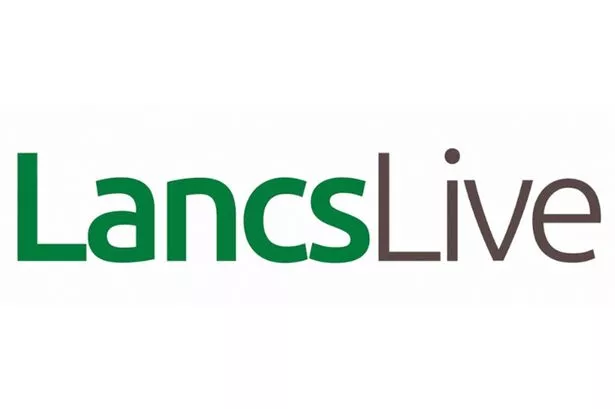Financial fraud claims advice
Start your claim today – zero upfront cost.
Speak with our scam recovery team today. No cost, no pressure.
Spencer Churchill Claims Advice featured on:

What is financial fraud?
Financial fraud is when someone deliberately deceives you to steal your money, often by pretending to be a legitimate company, organisation, or person. Financial fraud covers a wide range of scams, including investment fraud, purchase scams, fake bank transfers, and impersonation fraud. In 2024, fraud costs in the UK reached £1.17 billion, with around 3.3 million incidents, marking a 12 % increase year-over-year
You don’t have to fall for a complicated scheme to be a victim of financial fraud. In many cases, victims willingly transfer money under pressure without realising they’ve been misled until it’s too late.

What are the most common financial frauds?
Financial fraud comes in many forms, but most follow familiar patterns designed to pressure, mislead, or manipulate you into handing over money. The most common financial frauds include:
- Authorised Push Payment (APP) fraud: This is when you’re tricked into transferring money to a fraudster. Because the payment is authorised, banks usually refuse to refund it. In 2021 alone, this accounted for nearly £400 million in losses.
- Purchase scams: You pay for goods or services online that never arrive, often from fake websites, social media ads, or fraudulent sellers on marketplace platforms.
- Investment scams: Fraudsters promise high returns on crypto, forex (foreign exchange), or stock investments to get you to transfer money through cloned websites and fake trading apps.
- Impersonation fraud: Scammers act as trusted bodies like your bank, HMRC, or even the police. Victims are pressured into moving funds for “security reasons” or to stop “suspicious activity”.
- Romance scams: You’re contacted by someone on a dating site or social platform who builds a fake relationship over time, then asks for money for supposed emergencies, travel, or family issues.
- Recovery scams: After a first scam, fraudsters may target you again, this time pretending to be from a claims firm, law enforcement, or even your bank, offering to help you recover your losses for a fee.

How do you identify financial fraud?
If you think you’re a victim of financial fraud, the signs aren’t always obvious, but there are some red flags to watch out for, including:
- Pressured to act quickly: Fraudsters often say your money is at risk or the opportunity will disappear if you don’t act immediately.
- The “company” or person has gone quiet: If you’ve been blocked, ghosted, or the whole website has suddenly vanished, that’s a strong sign of financial fraud.
- Details don’t match official records: The bank account name doesn’t match the business and you later found reviews exposing the scam.
- You’re being asked to send more money: Scammers sometimes ask for even more money to release your “profit” or to “complete the process”. This is a major red flag in investment and recovery scams.

What to do if you’ve been scammed
If you’ve been scammed out of money, don’t panic. Even if the payment was authorised, you may still have the right to claim your money back. Acting quickly improves the chance of recovery. Here’s what to do if you think you’ve been scammed:
- Stop all contact with the scammer: Avoid replying to messages, calls, or emails. Even if they sound helpful or apologetic, scammers only get back in touch to take more money from you.
- Report it to your bank: Explain what happened and ask them to freeze or recall the payment if possible. The sooner you act, the better.
- Keep all evidence: Save emails, messages, payment references, account details, and screenshots. This info will be important for any complaint or claim.
- Check if the firm was FCA-registered: Use the FCA register to see if the company was authorised. If not, or if you find a clone warning, that supports your case.
- Report the scam to Action Fraud: Submit a report via Action Fraud or call 0300 123 2040. This creates an official record and may support your recovery claim.
- Get your case reviewed: Even if the bank has already refused to help, it’s worth getting a second opinion. We specialise in financial fraud claims, including cases where banks said no.

What is a financial scam recovery claim?
A financial scam recovery claim is a formal request to recover money lost through financial fraud. It usually involves challenging your bank’s decision to refuse your case, gathering evidence, and submitting the case to a claims specialist for review.
How does the financial fraud claims process work?
Here’s a typical step-by-step breakdown of how a financial claims process works at Spencer Churchill Claims Advice:
- Initial case review: We assess the details of the fraud and review your bank’s response (if any). This is completely free and without obligation.
- Gathering evidence: We collect all relevant documents, messages, payment records, and FCA checks to support your case.
- Raise a formal complaint: If appropriate, we submit a complaint to your bank, challenging their decision under the APP Fraud Code or other relevant guidelines.
- Escalate to the Financial Ombudsman (if needed): If the bank doesn’t refund you, we can escalate your case to the Financial Ombudsman Service (FOS), which often rules in favour of scam victims.
- Recover your money: If your claim is successful, you’ll receive the refunded amount directly. If not, there’s nothing to pay under our no-win, no-fee model.

How can we help you recover money from financial fraud?
If you’ve lost money to financial fraud and your bank refused to help, it’s not the end of the road. At Spencer Churchill Claims Advice, we specialise in recovering funds for people just like you. Most clients come to us after being told there’s nothing more that can be done – but our team knows how to dig deeper. We’ve handled claims involving cloned companies, unregulated investments, and sophisticated impersonation scams. Where others stop, we keep pushing. As a result, we’ve helped our clients recover thousands of pounds, even in the most complex cases.
Here’s how we help:
- Free case review: Tell us what happened, and we’ll assess your chances of a successful claim – no obligation.
- No win, no fee: You only pay if we successfully recover money on your behalf.
- Specialist support: We know how to challenge the banks and escalate when necessary.
- Clear communication: We’ll make sure we’re on the same wavelength at all times; no confusing jargon or legalese.
Call us now at 01204 929929 or fill in our quick contact form for a free case review. No pressure or upfront cost – see if you can get your money back now!
What are the most common types of financial scams?
The most common types of financial scams include:
Crypto scams
Crypto scams usually involve fake investment platforms or fraudulent wallet transfers. Victims of crypto scams are often promised high returns and tricked into handing over private keys. Many involve overseas operations and disappear once funds are sent.
Romance scams
Romance scams involve someone forming a fake relationship online (e.g., over social media or dating apps) before asking for money. Scammers often claim to be working abroad, in the military, or dealing with a family emergency. The manipulation is slow and targeted and can be emotionally as well as financially damaging.
Investment scams
Investment scams typically promise quick returns from trading platforms, property deals, or crypto projects. Victims may be shown fake results or pressured to invest more. These scams often use high-pressure tactics and disappear as soon as money is transferred. They operate through social media ads, cold calls, or unregulated brokers.
Impersonation scams
In impersonation scams, fraudsters pose as trusted institutions – like your bank, HMRC, or a utility company – to trick you into making a payment or sharing account details. These scams are highly sophisticated, often using spoofed phone numbers, fake emails and urgent messaging.
Forex scams
Forex scams offer high-yield currency trading opportunities through online platforms or so-called “expert” traders. Victims are told they can double or triple their investment and often see fake profits at first. Eventually, the platform blocks withdrawals or vanishes entirely.
Purchase scams
Purchase scams happen when someone pays for goods or services that never arrive or are worthless. These scams are common on social platforms and online marketplaces. Once the money is transferred, the seller becomes untraceable.
Job and work-from-home scams
These scams target people looking for work, often by advertising fake job opportunities that require an upfront fee for training, equipment, or admin costs. Others trick people into handing over personal information or bank details.
Fake recovery firms and follow-up scams
Fake recovery firms claim they can help recover your lost money for a fee. These scammers usually say they’re affiliated with law enforcement or another official body. Once you pay, they vanish, taking even more money from those already defrauded.
Authorised Push Payment (APP) fraud
APP scams are when you’re misled into transferring money to a scammer, thinking you’re paying a legitimate person or organisation. This could be during a house purchase, settling a business invoice, or reacting to a fake alert from your “bank”.
Financial fraud FAQs
Got questions about fraud or working with scam recovery solicitors? Here are some of the most common ones we get:
Is it safe to use a scam recovery service?
Yes, it is safe to use a scam recovery service as long as it’s legitimate and FCA-regulated. Be careful of fake recovery firms that ask for upfront fees or make unrealistic guarantees. Trustworthy scam recovery solicitors like Spencer Churchill work on a no-win, no-fee basis and will provide clear communication throughout the process.
Can I get my money back if I authorised the payment?
Yes, you may still be able to get your money back even if you authorised the payment. These are called Authorised Push Payment (APP) scams. If your bank has failed to warn you or missed clear signs of fraud, you could be eligible for compensation.
How long does a claim usually take?
Most scam recovery claims take between 4 and 12 weeks, depending on the size of the case and how the bank or payment provider responds. Some cases may take longer if escalated to the Financial Ombudsman.
Is financial scamming a crime?
Yes, financial scamming is a criminal offence in the UK. It includes fraud by false representation, impersonation, or deception and can carry serious penalties under the Fraud Act 2006.
Will I need to go to court?
In most cases, no, you will not need to go to court. Claims are usually handled by professional funds recovery services who deal directly with your bank or payment provider. If needed, they can escalate the case through the proper complaints process without legal action.
Can you help me if my bank refused to refund me?
If your bank refused to refund you after being scammed, you can still challenge their decision. Banks often reject valid claims, but they can be overturned through complaints and legal escalation. Many scam victims recover their funds after an initial refusal – especially with expert help.
What types of scams can you help with?
We handle a wide range of scams, including:
- Crypto scams
- Romance scams
- Investment fraud
- Purchase scams (APP scams)
- Impersonation and phishing
- Work-from-home and job scams
Can you track down lost crypto or funds?
In many cases, yes, you can track down lost crypto or funds. While crypto is harder to trace, specialist scam recovery solicitors can investigate wallet addresses, transaction histories, and exchanges.
How much does it cost to start a claim?
It costs nothing upfront to start a claim. Our scam recovery solicitors work on a no-win, no-fee basis, which means you’ll only pay if we successfully recover your money. No hidden fees or charges – all costs are explained clearly before we start.
What if I’ve already reported it to Action Fraud?
That’s fine. Reporting the scam to Action Fraud doesn’t stop you from making a recovery claim. In fact, it can help strengthen your case!
How long do I have to make a claim?
In most cases, you have up to 6 years to raise a complaint and make a claim. The sooner you act, the better – some banks apply stricter timeframes depending on the payment type, so don’t delay.
Can I claim if the scam was from overseas?
Yes, you may still be able to claim even if the scammer was based overseas. What matters is how the payment was made and whether your bank or provider took the right steps.
How can I protect myself from financial fraud?
To protect yourself from financial fraud, always check if a company is listed on the official FCA register, avoid clicking unknown links, and never move money under pressure. Be suspicious of an unexpected contact claiming to be from your bank or HMRC, especially if you’re asked to transfer money. Use strong passwords, enable two-factor authentication, and do your research before making payments or investments.
What’s the most common method used for financial fraud?
The most common method used for financial fraud in the UK is Authorised Push Payment (APP) fraud. This happens when a victim is tricked into transferring money to a fraudster’s account. In 2021 alone, this accounted for nearly £400 million in losses.
What are the consequences of financial fraud?
The consequences of financial fraud can include the loss of personal savings, emotional distress, and long-term financial insecurity. Victims may struggle to recover funds, especially if their bank refuses to refund the payment. In some cases, falling victim to fraud can affect credit ratings, mental health, and trust in financial services.
Ready to start your scam recovery?
If you’ve lost money to a scam, you could still claim it back with Spencer Churchill. There’s no pressure and nothing to pay upfront – just get in touch. We’ll review your case, explain your options, and let you decide if you want to move forward.
How does our claims process work?
It’s worth finding out if you can get your money back. Here’s how our simple process works:



Our promise to scam victims
We know how overwhelming it can feel after being scammed, so we treat every case with care, urgency, and respect. You won’t be passed between departments or left chasing answers; we keep things simple, clear and focused on one thing: getting your money back.
Whether you’ve lost £500 (the minimum we will look into is a loss of £3,000 or £50,000, our process is the same. We’ll look at the details, explain your options, and guide you through what happens next.
Start your claim today – it’s free to begin
Getting started is easy. Just send us a few details about what happened. We’ll review your case within 24 hours and let you know if you’re eligible to claim. No pressure, no obligation, no upfront costs.
Office hours:
Monday: 8:00am–6:00pm
Tuesday: 8:00am–6.00pm
Wednesday: 8:00am–6:00pm
Thursday: 8.00am–6.00pm
Friday: Office Closed










